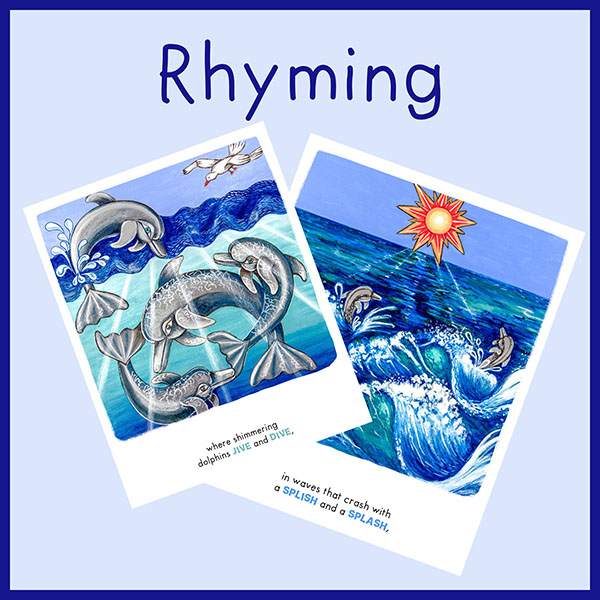
Young children often experiment by playing with a word and creating words that rhyme with it – even creating nonsensical ones.
It’s a fun game and they love it. Without knowing it, they are starting to build the foundations that will help them succeed at reading and writing.
The repetitive structure itself, is critical for learning because it leads to the development of skills that enable children to recognise and manipulate both words, and the spoken parts of sentences. It is a building block that leads to an understanding of meaning.
Rhyming is fun and:
- Helps children learn about sounds and words
- Helps children learn to listen to the sounds within words.
- Helps children learn words are made up of separate sounds.
- Develops speech and oral language.
- Enables a child to play with words.
- Introduces new vocabulary in a fun way
- Increases vocabulary knowledge
- Helps with brain development
- Develops the aural skills essential for differentiating between sounds and rhyming.
- Introduces beat and rhythm
- Builds memory retention
- Develops predicting skills, a skillset crucial when it comes to reading and writing.
- Teaches how a language works.
- Creates easily remembered stories, rhymes, finger plays and more
There are so many reasons for making sure one has a books of rhymes, chants, songs or finger games at the finger tips.
The beauty is, they can be shared – or played – anywhere: bath time, getting dressed, walking, in the car and more……

